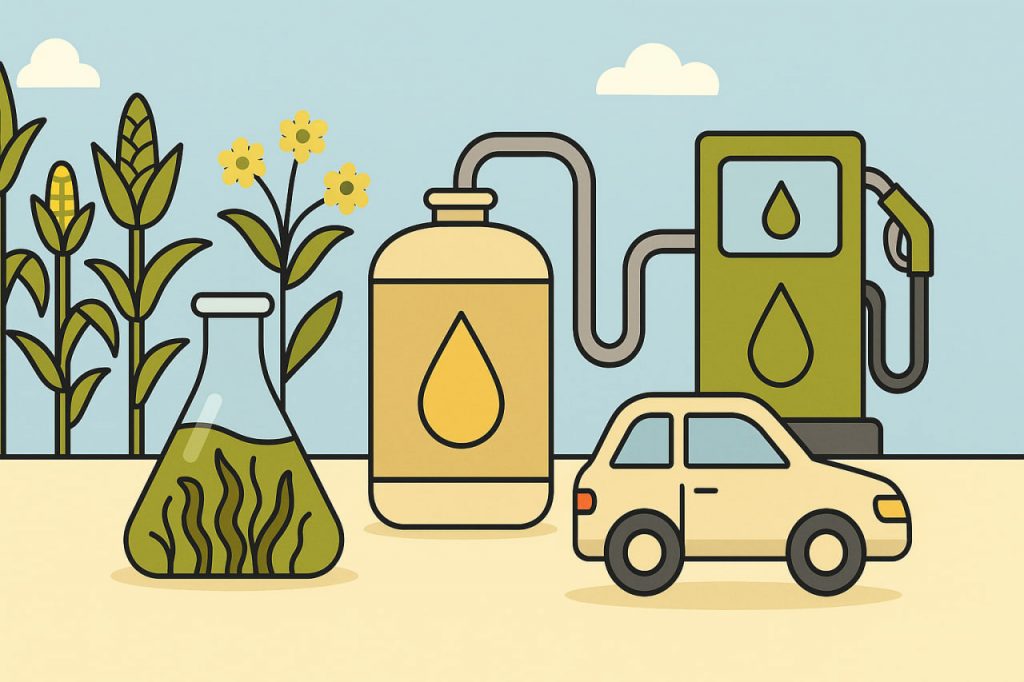Biofuel is a type of renewable energy made from biological materials such as plants, algae, and animal waste. Unlike fossil fuels, which take millions of years to form, biofuels can be produced in relatively short periods. They are used mainly as substitutes for gasoline, diesel, and jet fuel, helping reduce reliance on non-renewable energy sources.
Types of Biofuels
Biofuels are classified into different generations based on their raw materials:
- First-generation biofuels – made from food crops such as corn, sugarcane, and soybeans. Examples include bioethanol and biodiesel.
- Second-generation biofuels – derived from non-food biomass like agricultural waste, wood, and grasses.
- Third-generation biofuels – produced from algae, offering higher yields and less land use.
- Fourth-generation biofuels – experimental fuels created using advanced biotechnology and carbon-capture methods.
How Biofuels Are Produced
Biofuels are typically created through processes like fermentation, transesterification, or thermochemical conversion. For example, bioethanol is produced by fermenting sugars from plants, while biodiesel is made by chemically reacting vegetable oils or animal fats with alcohol. These methods allow renewable raw materials to be converted into liquid fuels compatible with modern engines.
Advantages of Biofuels
Biofuels are renewable and can help reduce greenhouse gas emissions compared to fossil fuels. They promote energy independence by using locally available resources and can support rural economies through agricultural development. Some biofuels are biodegradable and less toxic than petroleum-based fuels, making them safer for the environment.
Challenges and Limitations
Despite their benefits, biofuels have drawbacks. First-generation biofuels compete with food production, raising ethical concerns. Large-scale biofuel farming can lead to deforestation, water use, and soil depletion. Production costs can also be higher than traditional fuels. Advanced generations of biofuels aim to address these issues, but many technologies are still in development.
Applications of Biofuels
Biofuels are already widely used in transportation. Bioethanol is often blended with gasoline, while biodiesel is mixed with diesel fuel. Airlines are testing biofuel-based jet fuels to reduce carbon emissions. Biofuels also have potential in heating systems, power generation, and even as raw materials for producing bioplastics and chemicals.
Conclusion
Biofuels represent a promising step toward sustainable energy, offering renewable alternatives to fossil fuels. While challenges remain in balancing production, cost, and environmental impact, advances in technology continue to improve efficiency. In the future, biofuels could play a significant role in creating a cleaner and more sustainable energy system.
Glossary
- Biofuel – renewable fuel derived from biological materials.
- Bioethanol – alcohol fuel made from fermented sugars.
- Biodiesel – renewable fuel made from vegetable oils or animal fats.
- Transesterification – chemical process used to produce biodiesel.
- Greenhouse gas emissions – gases that trap heat in Earth’s atmosphere.
- Carbon-capture – technology that removes carbon dioxide during biofuel production.


